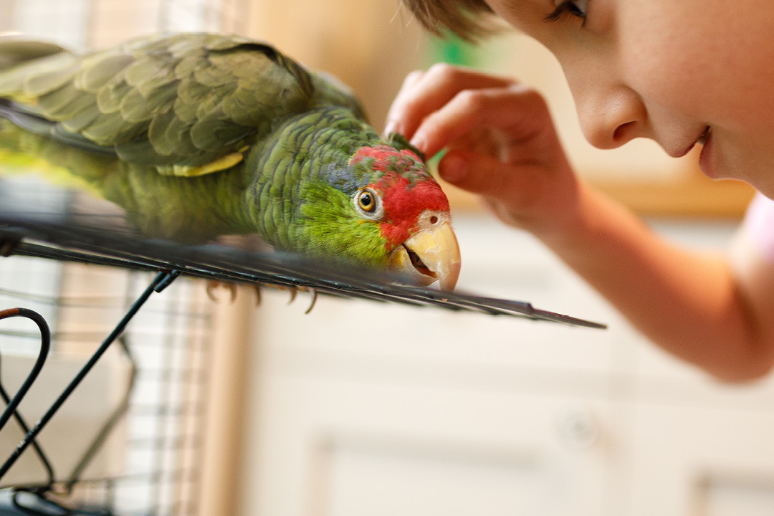When a couple gets divorced, child custody laws are intended to protect the best interests of human children. When pets are involved, however, custody laws are generally intended to benefit the owner, not the pet(s). That being said, true custody laws don’t really exist when it comes to pets in divorce. Animals are considered to be personal property, and courts have the authority to award the pet to either party in much the same way as they award a lawnmower or diamond necklace.
Granting shared custody of a pet to the divorced couple is no different than granting shared custody of a motorcycle, in the court’s eyes. As such, custody arrangements do not apply to divorced couples and their pets. So, how does the court decide who gets ownership of the pet or pets in question?
As with all types of personal property in a divorce, step one is for the court to determine what type of property is being divided. In New York, marital property, such as a jointly-held bank account, must be divided “equitably” or fairly. That doesn’t necessarily mean 50-50. In fact, in New York, determining equitable distribution involves the consideration of 13 specific factors, including the length of the marriage and the probable future financial situations of both parties. While this process works great for bank accounts and real estate, it’s not as useful in the case of a dog, cat, or guinea pig.
Did the Couple Have a Pet “Prenup”?
Even so, in a pet “custody” situation, the court will still need to determine whether the property in question (Fido or Fluffy, in this case) belongs to the couple or solely to one party. Next, the court will consider whether an existing agreement dictates who gets the property. Think of this as a prenup for pets. This is the only part of the process that could, in theory, apply to pets as to any other property. If, for example, the wife brought her dog, Bentley, to the marriage and the couple had a written agreement that Bentley would remain with her if they ever divorced, such an agreement would certainly be taken into consideration. Of course, this type of scenario is exceedingly rare. In most divorces involving a dispute over who keeps the pet(s), the court generally has to rely on other evidence, if any exists.
That being said, as pets become more and more a part of the family, some courts are beginning to treat pets more like human children in a divorce by considering what is in the pet’s best interest. Some courts have even awarded shared custody and visitation, and—in very rare cases—one spouse has been awarded alimony.
Although animals are still considered property in a court of law, many judges are sympathetic to the relationship between a person and his or her beloved pet. In fact, Alaska recently became the first state in the U.S. to consider a pet’s well-being when deciding which party in a divorce should get custody of the animal. The statute also allows judges to award joint custody of pets. Illinois quickly followed Alaska’s lead, allowing judges to grant joint or sole custody of family pets. But what if you don’t live in Alaska or Illinois?
Useful Evidence for Getting “Custody” of Your Pet in a Divorce
According to the Animal Legal Defense Fund, “because animals are considered property in the eyes of the law, it will likely be helpful to offer proof that you were the one who adopted the animal—or if the animal was purchased, that you were the one who purchased the animal.” This does not mean, however, that you should give up hope if you did not purchase the animal yourself. The evidence below will help you position yourself as the best person to care for your pet if you and your spouse cannot reach a mutual decision without legal assistance.
- Adoption papers showing that you purchased your pet, and/or that you are the registered owner.
- Vet records or documentation from your veterinarian showing that you were solely or primarily responsible for taking care of your pet’s health and wellness.
- Receipts from pet stores showing that you were the sole or primary purchaser of your pet’s food and toys.
- Pictures of you and your pet.
- Evidence that your home will be the best place for your pet—showing that you own your home and have a large, fenced-in yard or that your rental agreement allows for pets, for example.
- Evidence that you work from home, have a pet-friendly workplace or have a flexible work schedule that allows you to care for your pet.
Contact an Experienced Divorce Attorney Today
If you are concerned about who will get custody of the family pet(s) in your divorce, it is in your best interest to consult with a divorce attorney with experience in pet custody issues. Although most states don’t have official custody laws for animals, an experienced lawyer will know how to position you for the best possible outcome. Pets are a part of the family; don’t risk losing yours by trying to handle this complex legal issue on your own. Contact a skilled divorce lawyer today.
 By Amy Carst,
By Amy Carst, 

